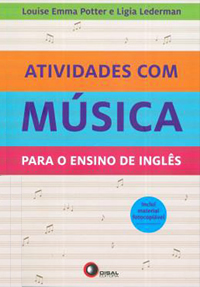By - Albina Escobar*

A lot has been said and written about the topic of professional development. Comparisons have been made and the dichotomy between development and training has been exhaustively discussed. I do not wish to delve any deeper into the topic from that viewpoint, but I have been thinking about myself lately. What have I done? What are the plans in terms of development or professional growth?
I have been, at least in my viewpoint, “developing professionally” for a long time and by long I really mean loooong. However, your age or how experienced you are, in any profession, does not necessarily mean that you have fully developed, or as Adrian Underhill once said, “become the best kind of … (teacher) I can possibly be”. I believe we can always get better or, at least, try.
Maybe I should define what I understand by professional development by quoting
https://www.edglossary.org/, “in education, the term professional development may be used in reference to a wide variety of specialized training, formal education, or advanced professional learning intended to help administrators, teachers, and other educators improve their professional knowledge, competence, skill, and effectiveness”. With such a wide scope and without some more specific examples, we may get lost, digress, divert, go astray…
To me, a teacher at heart, development is a process, not an event. It is the process of becoming the best teacher I can ever be. It involves change over time and it’s achieved in stages. It seems to be more challenging than ever and we were put to trial (and had to develop to keep on living) with having to stay home and teach online. We’ve had to, almost overnight, learn new tools and cope with endless fears of using technology and missing the classroom, our stage, our realm.
Development is often seen as relating to new experiences, new challenges, and the opportunity for teachers to broaden their repertoire and take on new responsibilities and challenges. This helps us to fight a feeling of jadedness, or lack of enthusiasm and to develop our careers as well as ourselves.
Development is about dealing with the needs and wants of the individual teacher in ways that suit that individual. The needs may be many and diverse – from confidence-building to language awareness or technical expertise.
Professional development for teachers of English has not just to do with language teaching or even teaching – it’s also about language development (language is alive and changes are constant), counselling skills, assertiveness training, confidence building, computing (more than ever), meditation, cultural broadening – almost anything, in fact. Development is for the individual, for him/her to become a better human being, for better relationships, for a more democratic classroom - and world.
Development is to go beyond methods, approaches, techniques, activities. We need to develop our soft skills (personal attributes that enhance an individual’s interactions), job performance and career prospects. In other words, soft skills are the subtle behaviours and communication styles that help make a work environment or interaction with another person easier to manage - communication (verbal and non-verbal), flexibility, conflict management, problem solving, ability to work under pressure, creativity, teamwork, to mention some.
As teachers, we need to be good communicators. Do you say what you mean and do you “show” that properly? How many times have you explained something, and students misunderstood the message? How often have you felt awkward because you did not understand the point someone was trying to make? I often realise that the hidden message was lost in my anxiety to say or do something. What to do? Video yourself. Simple and efficient. Observe how you move, how you use your voice, your hands, the looks on your face. I was flabbergasted when I watched myself teaching, and still am when I ask my peers for feedback. Ask for feedback from your friends, colleagues, family.
I once gave a presentation at BRAZ-TESOL entitled “Who am I? A teacher or a psychologist?” I don’t remember the conclusion I came to at the time, but I’m sure teachers play lots of roles in the classroom. We have to cater for different learning styles and needs, deal with conflicts among students, be reasonable, manage our time inside and outside the classroom and lots of others. A friend introduced me to Mindfulness (what I thought was just a fancy word) and the talks, tasks and sharing with others made me see I am just a human being. Imperfect. But that’s who I am, and I need to accept the fact and deal with it. Learn with my imperfections and try to be more tolerant – both with myself and with my students.
There are several videos and talks on mindfulness that you can watch/listen to, and they offer practice activities that you can use in your private family and with your students and peers. Mindfulness essentially means being (intentionally) more aware and awake to each moment and being fully engaged in what is happening in one’s surroundings – with acceptance and without judgment.
I may have a lot of experience, I may have been around for a long time, but there is still a lot I want to learn. I have just enrolled in an Emotional Intelligence course. You may think that the topic is dated, but as the tutor is not an ELT professional, I believe he will tackle it from a different perspective. He is a psychologist. Am I going back to the paper I wrote long ago? Maybe. But certainly, from a new perspective.
Paraphrasing Shakespeare’s most famous line” To be or not to be…”, I would say: To develop/ learn/grow/improve or not to, it’s your choice!
Every day we have two choices: continue to do as we have always done or decide to change. According to Jeff Bezos: “In business, what’s dangerous is not to evolve.” I agree with him: In teaching, what’s dangerous is not to learn!
*Albina Escobar holds a BA in English Language and Literature from PUC- SP (Catholic University – São Paulo). She has worked as a teacher, language school coordinator, field editor, ELT Project Manager and Teacher trainer. Albina has written and adapted materials for Language schools as well as regular school: Blueprint Cue Books, English Around You 1 and 2, English Around Taxis, In Style Plus (EF), Hyperlink, InterAção (EM). She has also attended and given presentations at all international and national ELT conventions (namely IATEFL, TESOL, LABCI, ABCI, APLIESP, APIES, and BRAZ-TESOL,). Currently self-employed, Albina is a CELTA Tutor and Assessor, an ICELT Tutor and Moderator and a Cambridge School Inspector. She has been running ICELT and CELTA courses all over Brazil for over 20 years.
LIVRO RECOMENDADO
